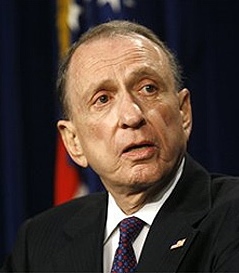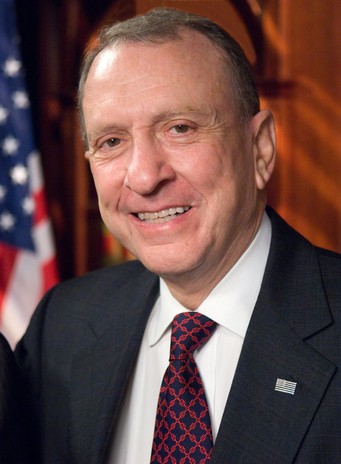Climate Politics
All Stories
-
To get support for a climate bill, offer cash back to Americans, argues Rep. Chris Van Hollen
Rep. Chris Van Hollen (D-Md.) thinks he’s got the key to passing a climate bill this year: send every American a rebate. It’s not a bribe, but a dividend — and one he thinks will help grow support for legislation to cap carbon. Van Hollen, an up-and-coming Democratic leader and chair of the Democratic Congressional […]
-
Obama: what swine flu?
Swine wha ….?From an Associated Press account of a Wednesday evening White House press conference: The news conference lasted an hour and covered topics ranging from the outbreak of swine flu — which Obama referred to as the H1N1 virus, evidently in deference to U.S. pork producers — to abortion and the recent flare-up in […]
-
Can it be? Even more tidbits from the Energy Efficiency Global Forum?
Here is the third and final collection of tidbits, factoids, and insights from the Energy Efficiency Global Forum. These are drawn from the final plenary session, which was two hours long and absolutely packed with interesting speakers and info. • Nobuo Tanaka, executive director of the International Energy Agency, pointed out that efficiency improvements have […]
-
More tidbits from the Energy Efficiency Global Forum
I have a couple of overview-type posts in mind re: the Energy Efficiency Global Forum, but first a couple more Tidbit Posts, sharing factoids and insights that otherwise won’t find a home. Here’s the second of three, drawn from the “executive dialogs” that took place alongside the main plenary sessions. • Lena Ek, member of […]
-
Energy crops up at Obama’s 100-day press conference
President Barack Obama told reporters at the press conference marking his 100th day in office that he is “pleased, but not satisfied” with the progress his administration has made thus far, noting energy among the issues they need to keep working on. While the majority of the event was consumed by other pressing issues of […]
-
Green jobs for America’s youth
One hundred days ago, President Barack Obama took the oath of office with an overwhelming mandate from America’s youth. Two out of every three citizens under the age of 30 voted for Obama in the 2008 election. We demanded change and Obama promised it. We demanded green jobs, strong climate policy, a safer and more […]
-
Obama’s green achievements at 100 days
Seventy-nine percent of Americans think President Barack Obama will do a good job protecting the country’s environment, according to the latest Gallup poll on the topic, released on Earth Day. That includes 95 percent of Democrats, 75 percent of independents and – most surprisingly — 65 percent of Republicans. At 100 days, what has he […]
-
As Specter moves to Democratic Party, will he help pass a climate bill?
Washington is buzzing about Pennsylvania Sen. Arlen Specter’s surprise switch to the Democratic Party on Tuesday, a move that will likely give Dems enough votes to overcome filibusters. Specter, a moderate who sits on the Senate Environment and Public Works committee, has been considered a key swing vote on climate and energy, among other issues. […]
-
Did environmentalists get played on cap and trade?
Although it’s not his regular beat, Kevin Drum blogs sensibly about carbon policy from time to time. Recently, though, in an otherwise agreeable post about the fecklessness of opponents of climate change legislation, Drum offers up a narrative that is both fairly commonplace and also riddled with misconceptions: It also goes to show how fleeting […]
-
What does Specter’s party switch mean for climate and energy?
The big news today is Sen. Arlen Specter’s announcement that he’ll be switching parties from Republican to Democrat. For the best analysis of why he did it (basically, he was fated to lose the upcoming primary), see Eric Kleefeld at TPM. The boss man asked me to weigh in from Paris on what it might […]








